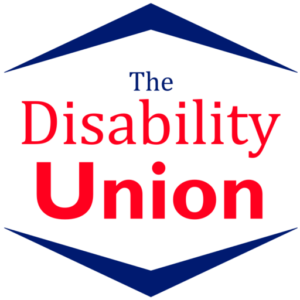
What defines disability? According to dictionary.com, disability can be defined as “lack of adequate power, strength, or physical or mental ability; incapacity.” On the surface, this makes sense. People who are extremely weak, both physically and mentally, are who one might think of as “disabled.” Where this definition begins to fall apart though, is when we try and quantify things. How weak is weak enough to be considered disabled, vs. someone who just doesn’t work out? For mental ability, are people who didn’t graduate high school all disabled? If someone couldn’t normally get out of bed by themself, but they could by using equipment to help them, are they no longer disabled? This isn’t to say that the definition of disability is bad per se. I think in a lot of ways, it’s good.
Language is Evolving
Language is important. It gives us the ability to communicate abstract ideas with each other, as well as more simple things like “I’m hungry.” It also changes over time, which people sometimes forget. Slang changes, grammar is fluid, and we don’t even realize it half of the time. In 2019, Merriam-Webster added 40 new words to their dictionary. In 2018, it was over 1,000. When was the last time you heard someone say “thou art” in everyday conversation? In much this same way, the way we refer to disability has changed too. Sure, it has a long way to go and certain languages are further ahead than others, but it’s still changed.
A Vicious Cycle
Because words carry meaning, they have certain baggage they carry with them. “Disability” has a negative connotation to it. Why? When anyone, at any time, can become disabled, why is such a normal word filled with such negative meaning? Filling this word with such meaning creates a vicious cycle. The word is seen as negative, so the thing is negative. To those who are born disabled or who have been disabled the majority of their life, it’s easy to see that the problem is society, not us. Having these negative meanings to words that are intrinsic to people’s identity means we begin to see ourselves as negative. Therefore, the word becomes negative. Words like disability sometimes carry such negative connotations that they can even become taboo.
Breaking the Cycle
The cycle never changes. It can be hard to get out of it and change things, but it’s so very important to do so. Breaking out of the cycle is difficult, but extremely important. Not only are you taking a word back that used to carry negative meaning, you’re usually changing the meaning to something more empowering. Changing the definition of the word to make it empowering is key. It’s important to get rid of the negative, often untrue connotations if perception of the group is ever going to change
Dictionary.com’s Definition of Disability
Going back to the definition, now we can talk about how it might be inaccurate as it currently stands. Again, the dictionary.com definition is “lack of adequate power, strength, or physical or mental ability; incapacity.” Here, “adequate” is the biggest problem. With the proper help–both by others and equipment, can’t anyone be adequate?
My favorite example of this is glasses. Technically needing corrective eyewear of any kind is a disability. It’s just so normalized that it’s not considered one. Imagine what the world would be like if every disability was handled that way. If instead of ignoring that the problem is the environment, we changed how things were designed in order to make the world accessible for everyone.
Changing the definition of disability
So to conclude, what changes could we make to the current definition of disability? It doesn’t need tons of changes, in my opinion, but it’s not accurate either. Definitions from the dictionary are meant to be broad, but they still need to be accurate. You don’t define a cat by its ability to bark, after all. With this in mind, let’s begin.
The first thing I want to do is define “power”, because it didn’t seem like it fit with the other descriptors. So, according to dictionary.com once again, power is defined as “ability to do or act; capability of doing or accomplishing something.” This definition makes sense, so I would like to keep this word. The words “strength”, and “physical or mental ability” work too, and are clear enough to keep.
Honestly, if we’re going for simplicity, I think the entire definition as it is is a good foundation. What it doesn’t have, is an adequate clause. The definition is correct, but only because society hasn’t done anything to help people with disabilities become more independent. My proposed definition for disability is:
lack of adequate power, strength, or physical or mental ability; incapacity, due to lack of access
Those last five words that I’ve added not only make the definition more accurate, they also shift the perspective. Now, instead of saying the effects of disability falls on the person, it now falls on society as a whole.
Disability is a word that has negative connotations for many people. It’s hard for some to even say it in anything but hushed tones. Changing the definition may not shift perspectives overnight, but it can break the vicious cycle over time.


